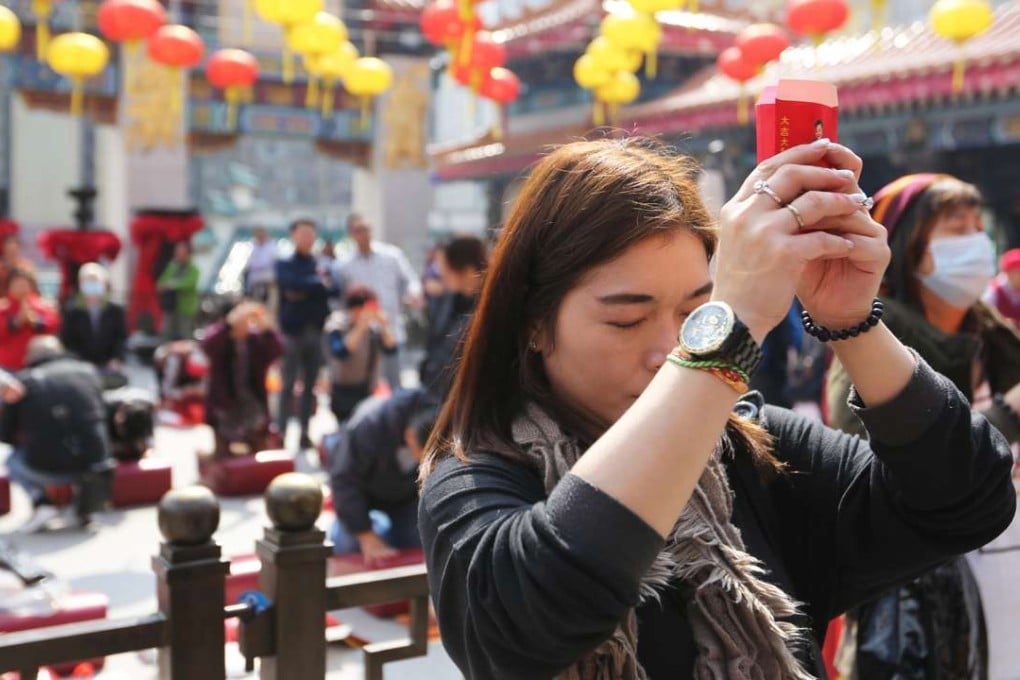Fortune-telling machines underused at Hong Kong temple as divine and digital don’t mix
Worshippers say they still prefer face-to-face interactions for discussions about fate

One of Hong Kong’s most popular temples has rolled out fortune-telling machines for worshippers in the lead-up to the Lunar New Year, but amid spiralling plumes of incense smoke and the rattling of bamboo divination sticks, one fact the new system could not predict was that tradition still trumps technology.
The machines were installed to scan and interpret Kau Chim fortune sticks embedded with radio frequency identification tags.

Traditionally, worshippers would shake out a divination stick from a cylinder of 100 flat wooden rods, and have nearby vendors read out their fortunes accordingly.
The three e-stick reader booths launched by the temple digitised this process by allowing visitors to scan their sticks and print out their fortunes for the Year of the Rooster.
Worshippers could also use the temple’s mobile app to scan a QR code from the booths and receive their fortunes.